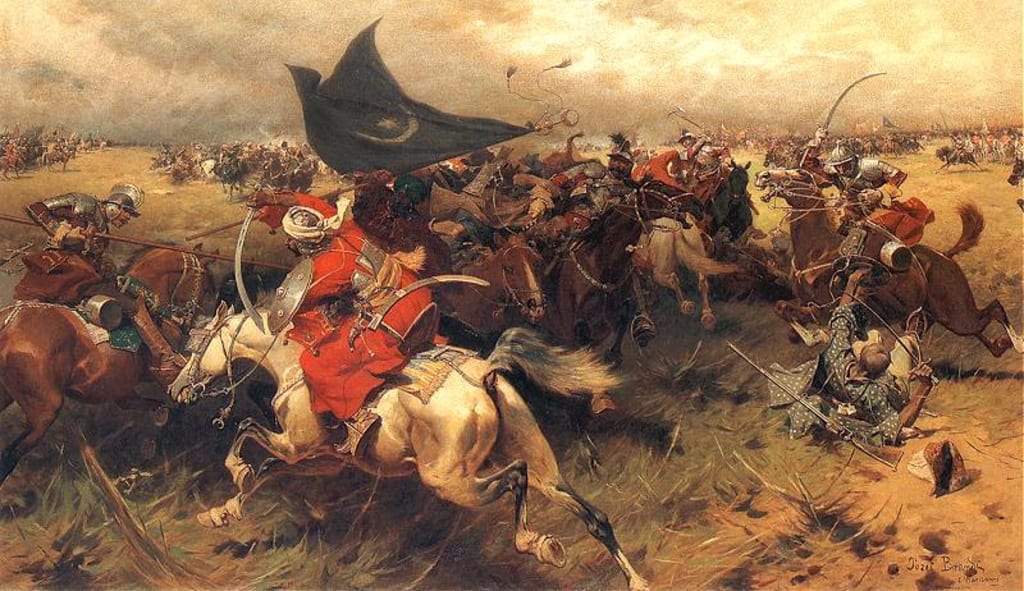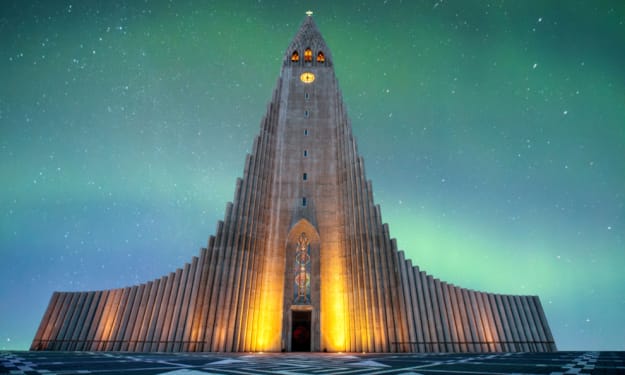The Fall of the Ottoman Empire
A Transformative Era in History

Introduction:
The Ottoman Empire, one of the most significant and enduring empires in history, fell in the early 20th century, marking the end of an era that had spanned for more than six centuries. The empire's decline and ultimate collapse were the result of various factors, including internal weaknesses, external pressures, and socio-political changes on a global scale. This article explores the causes and consequences of the fall of the Ottoman Empire, a pivotal moment that reshaped the geopolitical landscape of the Middle East and Europe.
Internal Weaknesses:
The Ottoman Empire faced internal challenges that gradually weakened its governance and administration. Decades of mismanagement, corruption, and nepotism eroded the empire's once-vibrant institutions. The Sultan's authority was undermined by a lack of effective succession mechanisms, leading to weak rulers and power struggles among various factions. Additionally, economic stagnation, agrarian unrest, and growing nationalism within the diverse empire further strained the unity and stability of the Ottoman state.
External Pressures:
As the 19th century progressed, the Ottoman Empire faced mounting external pressures from European powers. The empire's strategic location, bordering Europe, Asia, and Africa, made it a subject of imperialist ambitions. European powers, particularly Russia, sought to expand their influence and territory at the expense of the Ottomans. The Russo-Turkish Wars of the 18th and 19th centuries weakened the empire and exposed its military vulnerabilities.

Rise of Nationalism:
Nationalism emerged as a powerful force during the late 19th and early 20th centuries, challenging the multiethnic fabric of the Ottoman Empire. Ethnic and religious minorities within the empire, such as Greeks, Armenians, and Arabs, began demanding greater autonomy or independence. The Young Turk Revolution in 1908, driven by nationalist sentiments, briefly reinvigorated the empire, but internal divisions and conflicts soon resurfaced.
World War I and the Empire's Demise:
The Ottoman Empire's entry into World War I in 1914 proved disastrous. Initially aligned with the Central Powers, including Germany and Austria-Hungary, the Ottomans faced military defeats and economic collapse. The empire's decision to target its Armenian and Assyrian populations during the war resulted in mass atrocities and genocide, tarnishing its reputation and further destabilizing the region. The defeat of the Central Powers and subsequent partitioning of Ottoman territories under the Treaty of Sèvres in 1920 signaled the final blow to the empire.
Legacy and Impact:
The fall of the Ottoman Empire had far-reaching consequences. The empire's disintegration gave birth to new nation-states in the Middle East, such as Turkey, Iraq, Syria, Jordan, and Lebanon. The Sykes-Picot Agreement, a secret treaty between Britain and France during World War I, shaped the new political boundaries of the region, often disregarding ethnic and religious realities. The repercussions of these decisions are still felt today, as conflicts and geopolitical tensions persist in the Middle East.
Economic Challenges:
The Ottoman Empire faced significant economic challenges in the late 19th and early 20th centuries. The empire's economy struggled to keep pace with the rapidly industrializing European powers. The decline of traditional industries, such as textiles, and the inability to adapt to modern economic practices led to a loss of competitiveness. The empire also accumulated substantial debt, making it increasingly reliant on foreign loans, which further weakened its financial stability.
Reform Efforts:
Recognizing the need for reform, several sultans attempted to modernize the empire's political and social structures. The Tanzimat reforms in the mid-19th century aimed to centralize authority, establish a more efficient bureaucracy, and introduce legal reforms. However, these efforts were often met with resistance from conservative elements within the empire and were insufficient to address the deep-rooted challenges it faced.
Impact of Western Ideas:
The influence of Western ideas and ideologies played a significant role in the empire's decline. The spread of Enlightenment ideals, concepts of democracy, and calls for individual rights found resonance among intellectuals and nationalist movements within the empire. The Young Turks, a reformist and nationalist group, drew inspiration from Western political models and played a pivotal role in the empire's final years.
Balkan Nationalism:
The rise of Balkan nationalism in the late 19th and early 20th centuries presented a considerable challenge to the Ottoman Empire. Various ethnic groups in the Balkans, such as Serbs, Bulgarians, and Greeks, sought independence from Ottoman rule, leading to a series of Balkan Wars. These conflicts further weakened the empire's territorial integrity and strained its military capabilities.
End of Caliphate:
The fall of the Ottoman Empire also marked the end of the Islamic Caliphate, which had served as the spiritual and political leadership of the Muslim world for centuries. The abolition of the caliphate by Mustafa Kemal Atatürk in 1924 severed the empire's ties to its Islamic heritage and emphasized the secularization of the newly formed Republic of Turkey.
Conclusion:
The fall of the Ottoman Empire marked the end of a powerful imperial legacy and signaled the dawn of a new era in the Middle East. Internal weaknesses, external pressures, and the rise of nationalism all played significant roles in the empire's decline. The empire's demise had lasting effects, as new political entities emerged and regional dynamics were forever altered. The fall of the Ottoman Empire remains a critical period in history, reminding us of the complex interplay between global forces, internal dynamics, and the quest for self-determination.
About the Creator
Moiz Tanvir
Hi Everyone, I'm a writer who writes articles on historical events. For me imagining the historical scenarios is the best feeling so I just write about them for my satisfaction. Hope you all will like my history-based articles. Thanks.
Enjoyed the story? Support the Creator.
Subscribe for free to receive all their stories in your feed. You could also pledge your support or give them a one-off tip, letting them know you appreciate their work.






Comments
There are no comments for this story
Be the first to respond and start the conversation.